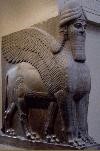‘The difference between a hero and a victim is in stance, relationship to the situation. The victim is passive, the hero looks at how can I save the situation and bring everyone to my goal…. The very nature of heroism requires us to face the dragon, not sit around and complain that dragons exist and that someone should do something about them…. Heroes confront their terrors and so are not limited by their fears.” The Hero With a Thousand Faces. Joseph Campbell
For anyone who is embarked on a difficult road toward an important destination, and I would argue that this includes everyone in education, the myth of the hero offers a framework to view our journey — to persevere against the odds of bigger powers that loom over every day and hour of our school lives.
The hero is not so much a savior as an individual who is willing to endure challenges and overcome obstacles because (s)he has heard a call for a quest that is too important to ignore. The call may be in the form of a specific message or it may come as thoughts about what to do. It may be from a “dark and loathly” character. Often the hero tries to ignore the call, being like everyone else, not wanting to take on the effort and risks. But it won’t go away and the hero finally heeds the call and embarks on the road to adventure, otherwise known as the road of trials.
How did the call come to you? Did you always want to teach? Change kids’ lives like a teacher did for you? Prevent kids from suffering like you did in school? I don’t think it is hubris to believe that as teachers we might spark greatness in our students to change the world. I see it in progress at some of the schools where i work.
When I get up at 5am and realize my commute to school will be on a snow covered dark highway, I motivate myself with the expectation of at least one example of heroism I will probably see that day.
It may be the heroism of a child who has life struggles and still tries to get along in a group environment with specific tasks to accomplish that don’t help her daily life situation at all. But she wants to trust her teachers’ word that in the end this will help her. It is in the teacher who spends her evenings reading research about how to convey algebraic concepts to kids who struggle to understand and she discovers reading strategies that open the door for some of them. I see it in the principal who maneuvers the budget to hire a full time media specialist or keep an experiential learning program against cuts that provide more time for test prep.
At the beginning of the journey, the hero must go through an initiation in order to be prepared for the hard road ahead. As Joseph Campbell writes in The Hero With a Thousand Faces, “It is folly to go unprepared.” I say it is also folly to go alone. The hero’s journey is challenging and risky with great rewards and lessons along the way.
I suspect that everything I write in this ongoing blog is an exploration of tools, gifts and potential allies for this hero’s journey.


Margie,
I just revisited The Hero Within” by Carol Pearson to help guide me on my journey, it’s worth a look each time I venture into it, as it gives me words and archetypes to help define where I am on this hero’s path.
This is exciting to see you here, safe and adventurous travels my friend.
I keeping finding something new in the hero’s journey as life goes on.